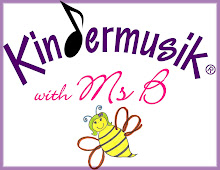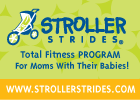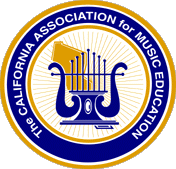We all want what's best for children. Choosing a school may be one of the most important factors in giving our child the best. So how do we choose the right school?
Everyone has an opinion (sometimes a very vocal opinion!) on what the best school setting is. Public school, private school, home-school, and charter school all have advantages and disadvantages. There is no BEST school, only what's best for YOUR child. So what are some of these advantages and disadvantages?
Here are the advantages/disadvantages as listed in Vicki Caruana's
"Giving Your Child the Excellence Edge".
PUBLIC SCHOOL
Advantages:
1. Public schools are good at reaching out and helping the below-average student.
2. Public schools are driven by common standards and goals.
3. Public schools are free. (Big determining factor IMO)
4. Public schools offer students a variety of social experiences based upon diverse populations.
Disadvantages:
1. Public schools are overcrowded.
2. Public schools often lack funds.
3. Public schools do not effectively address the needs of gifted students. (Not certain I agree with this one)
4. Public schools have more saftey concerns than the others.
5. Public schools can be more "forward thinking" than many parents might prefer.
6. As is common in politics, "reform" can often mean a previously failed approach repackaged under a new name.
PRIVATE SCHOOLS
Advantages:
1. Private schools are often church-affiliated and may support your desire to impart faith in your child's education. (Depending on your beliefs this could be an advantage or a disadvantage)
2. Private schools typically have a higher level of parental involvement.
3. A community atmosphere can encourage greater solidarity and discipline among students.
4. Accelerated curricula for gifted students is usually offered.
5. Although some private schools can be over-crowded, they generally have a smaller class size.
Disadvantages:
1. Although private schools must undergo an accreditation process, some schools and teachers have not earned accreditation.
2. Private schools that have earned accreditation will be more expensive.
3. Problem students sent from public schools may derail opportunities for creativity and classroom innovation.
4. Parents must often transport their own children to school.
5. If a private school is church-affiliated, it may support a denomination with differing doctrinal views from the parents.
CHARTER/MAGNET SCHOOLS
Advantages:
1. Because they are publicly funded, there is no tuition cost.
2. They typically offer smaller class size.
3. They may target a specific need of your child.
4. They allow for greater parental input.
5. Due to high parent involvement and visibility, they may have fewer disciplinary problems and safety concerns.
Disadvantages:
1. They may not be conveniently located, and the parent is usually responsible for transportation.
2. Waiting lists can be very long.
3. With such a high level of parental involvement, disagreements can sometimes disrupt programs.
HOME-SCHOOLING
Advantages:
1. Homeschooling best meets the individual learning needs of children. (This depends on the parents, of course)
2. Home-schooling can create or strengthen the family bond.
3. Parents can set their own schedule and choose their own curricula.
Disadvantegs:
1. Parental burnout can frequently occur in the absense of a strong support system.
2. The financial sacrifice of changing to a one-income family is too great for many.
3. The choice to home-school is still criticized and questioned by many.
When choosing a school for a child you need to know yourself and your child.
- How much involvement can you afford?
- What is your child's learning style?
- Does your child need special attention? Ahead? Behind?
- In what kind of environment will my child succeed?
- Do you desire to have input on your child's curriculum?
- Is diversity of race and social status important to you?
- What are my options if I disagree with something at the school?
My husband, children and myself have attended all of these different types of school. And each of us has attended at least two of the types. There is no "right answer". And the answer may not be the same for each of your children. While clearly it is more convenient to send all of your children to the same school, this may not be what's best for them. Research the options. Make an educated decision. The remember whatever school your child attends, YOU are still their best teacher! What you do and say in their presence (and out) will make a greater impact than anything else in their lives. If you cannot afford the time or money or driving distance (or whatever hindrance may arise) to put your child in your first schooling choice - don't fret. Your influence and involvement will help your child become the person they are going to be more than any school.
For more questions about choosing a school for your child be certain to see the
Department of Education's website.




